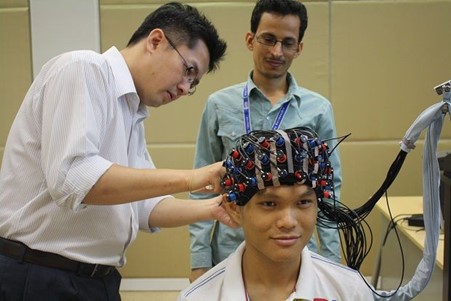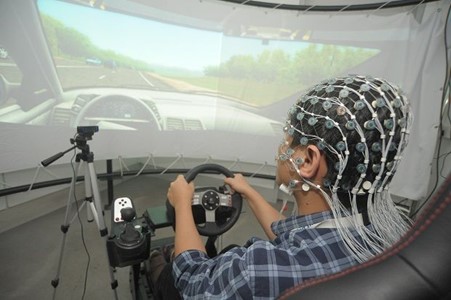Smart communities themed postgraduate degrees
(The Star, 29 December 2020)
Universiti Teknologi PETRONAS postgraduate research programmes tackle future living issues from education, health and wellbeing to energy and mobility
FOR most of human history, people around the world have lived in small communities, but today cities are growing at an unprecedented rate.
Currently, more than half of the world’s population live in urban areas, and this is expected to rise to 66% in 2050.
At the same time, the increasing pace of digitalisation and emerging technologies such as artificial intelligence, the Internet of Things, big data and data analytics are also changing the way we live, work, travel and play.
Rapid urbanisation coupled with the disruptions brought on by technology has also led to the development of smart cities and smart communities, which leverage on automation, intelligent and connected devices and systems for a more sustainable future.
Universiti Teknologi PETRONAS (UTP) is cognisant of the challenges resulting from urbanisation as well as the promise of emerging technologies in creating better, more inclusive futures.
So if you’re keen on exploring solutions for smarter and sustainable communities then a postgraduate research programme at UTP is the obvious pathway.
The university’s 22 postgraduate degree programmes are broadly categorised under two themes – energy sustainability, and smart communities. Under each of these themes there are multi-disciplinary research institutions supporting the various postgraduate research topics.
In the conventional approach of pursuing a postgraduate degree, the student undertakes research at a specific department or faculty.
UTP’s approach, however, is more unique.
At UTP, postgraduate students pursue their research at respective research institutes, comprising academic staff from various departments and faculties.
There are instances, depending on the research topic, when a postgraduate researcher may have one main supervisor and several co-supervisors – thus enjoying a more stimulating and collaborative research environment.
The research institutes under the smart communities theme include the Institute of Health and Analytics (IHA) for Personalised Care, the Institute of Self-Sustainable Building (ISB) for Smart Living, and the Institute of Transport Infrastructure (ITI) for Smart Mobility. Each of the respective research institutes also host individual research centres.
So how can these research institutes partner with the postgraduate students in their quests to design and create solutions for future living?
 Tang conducting assessment and intervention on a participant using the functional near-infrared spectroscopy (fNIRS) to address stress at work to achieve optimum performance.
Tang conducting assessment and intervention on a participant using the functional near-infrared spectroscopy (fNIRS) to address stress at work to achieve optimum performance.
Associate Professor Dr Tang Tong Boon says these research institutes provide a rich ecosystem for research into issues relating to renewable energy to power buildings and communities, green transportation solutions, smarter homes for the young and elderly, among others.
Tang who heads the IHA says one of its priorities is to explore pioneering advanced technologies and data analytics for health and quality education.
Within the IHA is the Centre for Intelligent Signal and Imaging Research (CISIR). It is a national centre of excellence, conferred by the Higher Education Ministry in 2014. It is one of the 20 national centres of excellence in Malaysia.
CISIR is dedicated to undertaking translational research in the areas of brain pathways and mental states. The centre provides a platform to study brain-related issues and associated problems from the medical professional and societal perspectives.
Its research staff develop advanced signal processing techniques and utilise various neuroimaging modalities to investigate the characteristics and functions of the brain and/or the diagnosis of different neuropsychiatric disorders.
Committed to conducting research, disseminating findings, promoting and enhancing R&D cultures through collaborative research with local and overseas research institutions, hospitals and industry, a postgraduate researcher attached to CISIR can be assured of a fulfilling and intellectually engaging research environment.
“If you’re someone who is interested in being part of an exciting team to challenge how you can innovate and contribute to future living, then a postgraduate research at UTP is appealing, ” says Tang.
Researchers also have the opportunity to work with UTP partners such as hospitals and schools – collaborating with neurosurgeons, conducting clinical trials.
The IHA is well-equipped with state-of-the-art facilities including exoskeleton apparatus (armeo spring) to study arm and hand rehabilitation, a green room studio for augmental reality recordings, MRI-compatible electroencephalography (EEG) headset with 128-channel amplifier, as well as portable EEG devices.
 Using electroencephalography (EEG), researchers at UTP Institute of Health and Analytics (IHA) for Personalised Care are able to detect factors that cause accidents such as drowsiness, fatigue and distraction.
Using electroencephalography (EEG), researchers at UTP Institute of Health and Analytics (IHA) for Personalised Care are able to detect factors that cause accidents such as drowsiness, fatigue and distraction.
It also has two Hitachi OT-R40 functional near infrared spectroscopy (fNIRS) systems which have the highest grade (number of measuring channels) in Malaysia.
The institute also collaborates with reputable institutions around the world including National University of Singapore, National Tsing Hua University (Taiwan), National Taiwan Normal University, Technische Universitat Dresden (Germany), Ecole Nationale Superieure d’Arts et Metiers (France), Monash University (Australia), Murdoch University (Australia), University of Melbourne (Australia), University of Glasgow (UK), University of Leeds (UK), and Universitas Gadjah Mada (Indonesia) to name a few.
These partnerships and linkages offer students a richly rewarding learning experience.
In the case of Aishah Ismail who was awarded the Merdeka Grant Award, she was able to kick off her research at the prestigious Massachusetts Institute of Technology (MIT).
The PhD in Applied Science postgraduate student who has since returned from her stint at MIT is now putting to use her experiences at the Ivy League institution in her daily research routine at UTP.
Another key advantage of undertaking a postgraduate research at UTP is the fact that nearly all of the university’s 300-strong academic staff comprises principal investigators with projects that are largely industry-funded.
These funds, ranging from a few hundred thousand to a few million ringgit, allow postgraduate students to secure sponsorships to undertake research contributing to the various projects.
UTP also has a high ratio of international community amongst the staff and students, which provide for a unique global intellectual and cultural experience for postgraduate students.

